If you prefer to clean your house using “green” cleaning methods, such as vinegar and soap instead of harmful chemicals, you’ve probably already realized just how valuable baking soda can be.
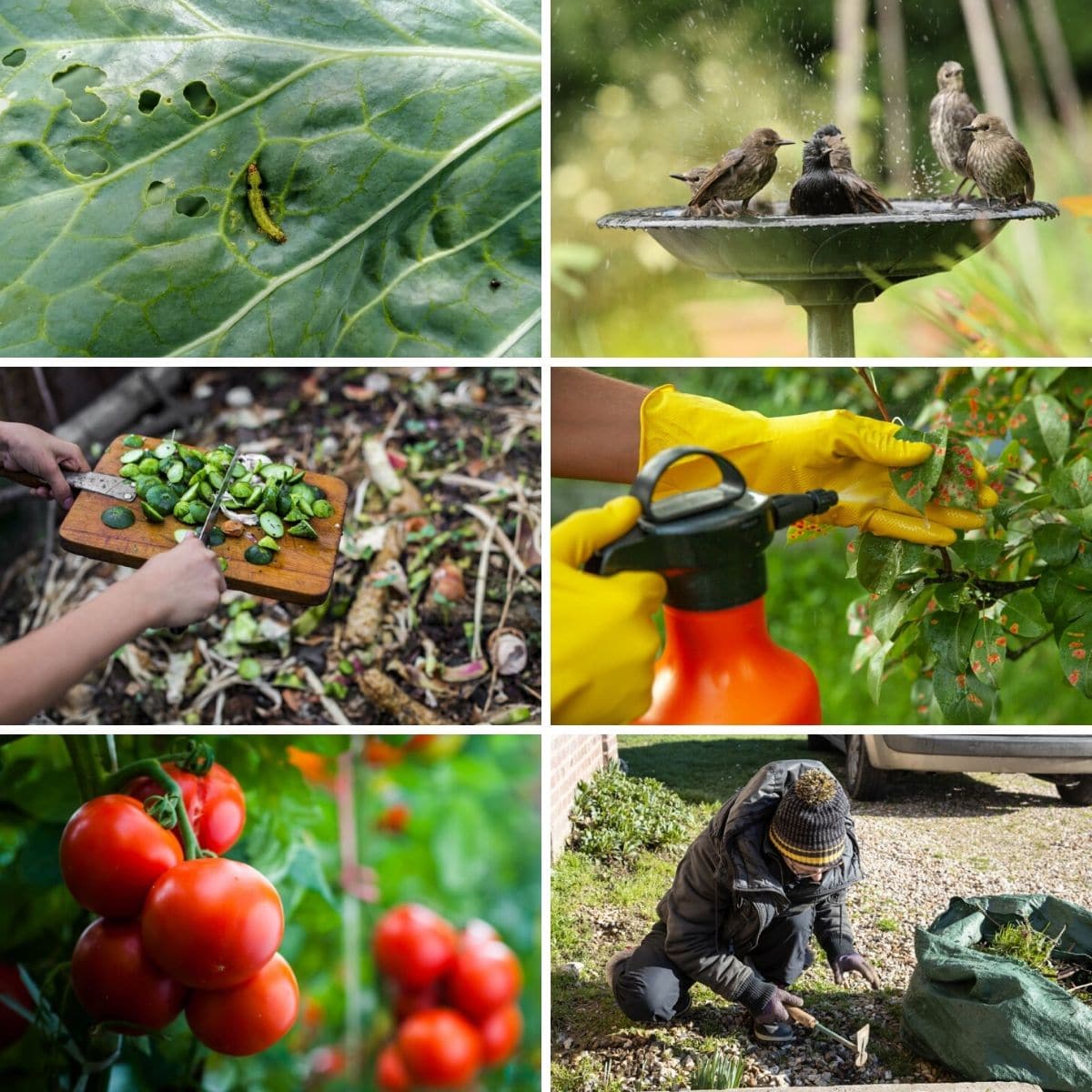 However, did you know that baking soda’s uses extend far beyond the kitchen and home - and that baking soda is also incredibly important in the garden?
However, did you know that baking soda’s uses extend far beyond the kitchen and home - and that baking soda is also incredibly important in the garden?
There are lots of benefits to choosing baking soda. Not only is it safer to use than the harmful chemicals found in pesticides, fertilizers, and other garden products, but it’s also affordable and found at just about every store.
Here are some of the best uses for baking soda in the garden.
23 Uses for Baking Soda in the Garden
1. Make a Healthy Fungicide
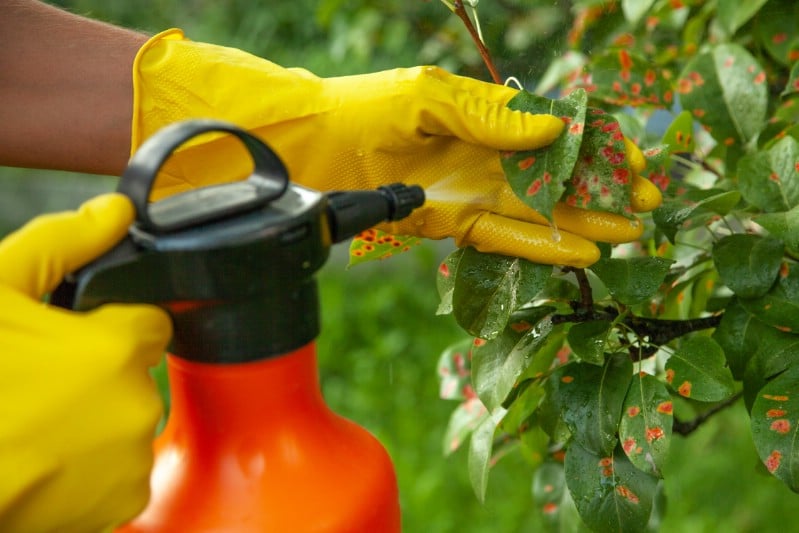
Fungal problems can be tough to prevent in the garden - especially if the year’s weather happens to be warm and wet. Luckily, there are some simple steps you can take to prevent fungus from taking hold.
One of the easiest ways is to mix four teaspoons of baking soda with a gallon of lukewarm water. Use the mixture on roses to treat black spot fungus or on vines and grapes as soon as fruits begin to appear.
This baking soda concoction also works well at preventing and treating powdery mildew, a disease that’s common to all kinds of plants, but particularly squash plants.
You can even sprinkle a bit of baking soda on tomato plants, which will prevent slugs and tomato hornworms.
2. Deter Ants, Roaches, Slugs, and Other Garden Pests
Whether it’s ants, slugs, roaches, or some other kind of garden pest that’s driving you nuts this season, you may want to consider using baking soda.
Simply sprinkle some on your garden - or at least around the perimeter - using a flour sifter it will keep all of these pests at bay. Just make sure you stay away from your plants!
3. Freshen Up Potted Plants
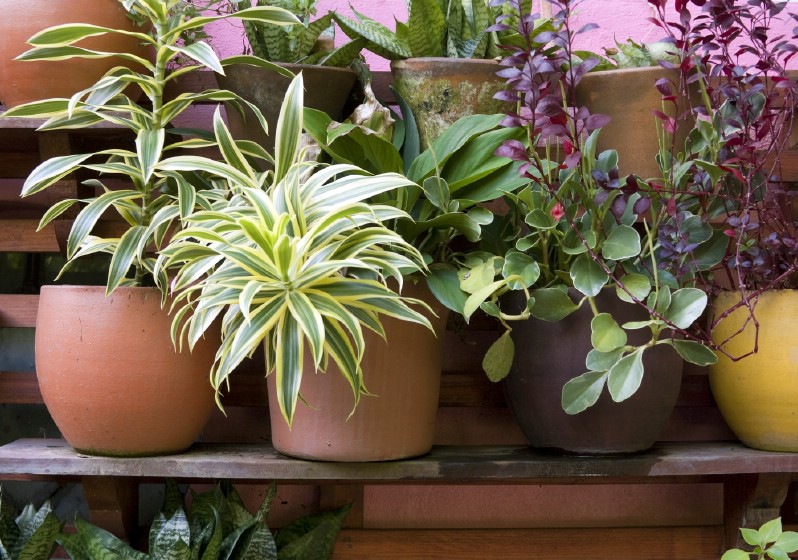
4. Revitalize Your Compost

Add a bit of baking soda. It will eliminate the odors without stopping the beneficial actions of valuable microorganisms in your compost. If you don't compost you're missing out! Check out our diy compost bins and list of things you can and can't compost.
5. Amend Your Soil
You can easily use baking soda to make a healthy soil amendment. To do this, mix together a teaspoon of baking soda, one teaspoon of Epsom salt, and half a teaspoon of ammonia.
Add this to a gallon of water, then pour it into your watering can. When you water your garden as you normally would, you can add this mixture to rejuvenate the soil and your lifeless plants.
6. Sweeten Tomatoes
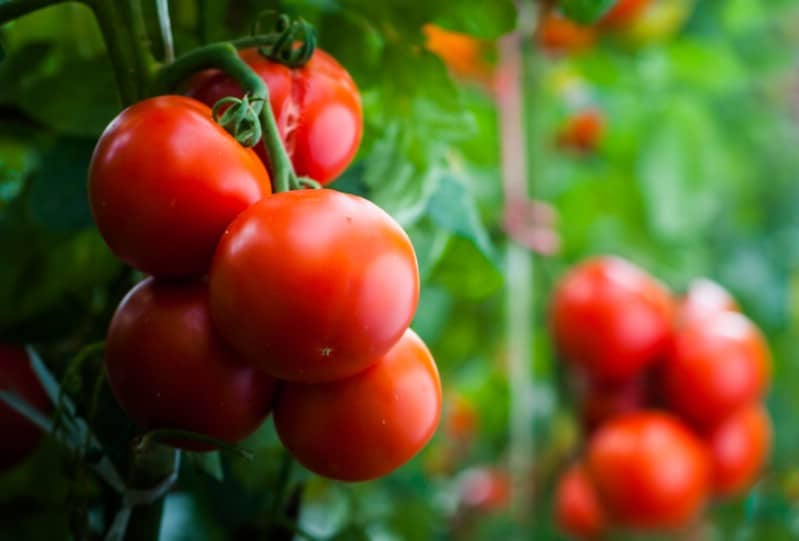
It will lower the acidity levels and make your tomatoes taste ten times better. Just try not to get any on the plants themselves. Learn more about tomato gardening by checking out our ultimate tomato gardening guide.
7. Brighten Up Your Walkways
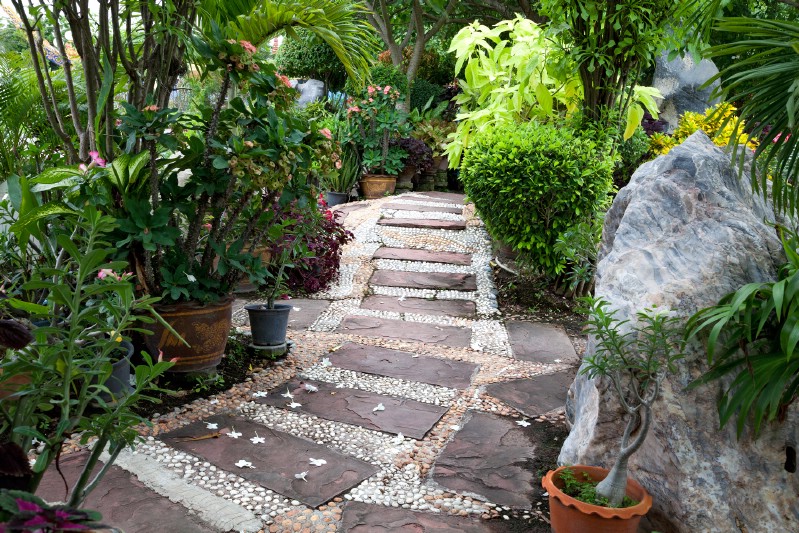 Although the walkways that wind through your garden can be relaxing and rejuvenating to walk through, pathways that have begun to accumulate weeds and grime can be less than beautiful.
Although the walkways that wind through your garden can be relaxing and rejuvenating to walk through, pathways that have begun to accumulate weeds and grime can be less than beautiful.
Add a couple of tablespoons of baking soda to a quart of warm water. You can add extra baking soda if there are tough stains. If you don't have a nice garden walkway check out this post featuring 25 garden stepping stone ideas.
Dip a brush into the mixture, then scrub away!
8. Get Rid of Cabbage Worms
Cabbage worms are incredibly annoying pests that are found on all kinds of vegetables, including (you guessed it) cabbage, broccoli, and kale.
To prevent and kill cabbage worms, just dust the plants that are affected. The baking soda will kill the worms if they eat the plants, but you can always reapply as needed.
9. Banish Sap-Sucking Pests
Both aphids and spider mites are incredibly aggravating garden pests to deal with - and they can kill your plants. Aphids and spider mites alike suck nutrients and moisture out of the leaves of your plants, for instance, completely depleting them of their nutrients.
Use baking soda to deter them. Simply combine two cups of water with ⅔ cup of olive oil and a teaspoon of baking soda. Mix the combination in a spray bottle, then apply it to your plants. These annoying pests will be gone in no time.
10. Stop an Ant Infestation
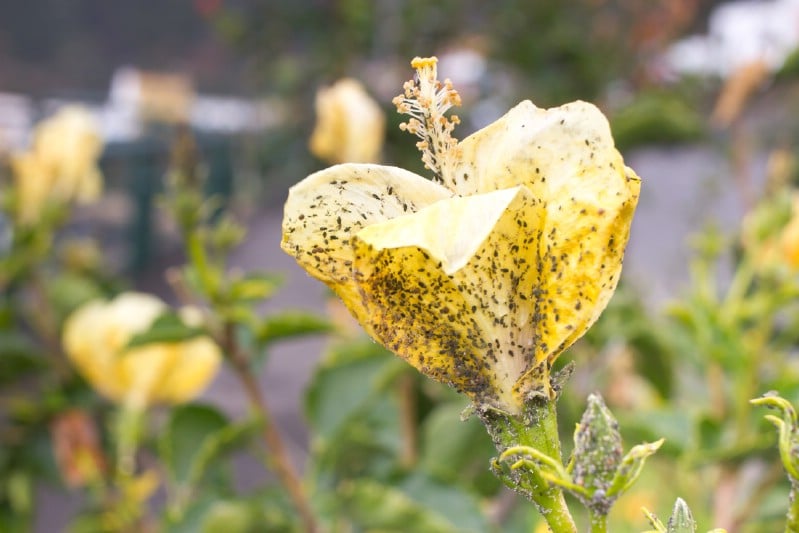
The ants will be drawn to the sugar and will eat it - but the baking soda will kill them. You can pour this mixture on any anthills you find among your plants. If you have ants in your home you can use this recipe to get rid of them.
11. Perk up Your Plants
Plants looking a bit listless? Try watering them with a gallon of pure, filtered water, a teaspoon of baking soda, a teaspoon of Epsom salts, and half a teaspoon of ammonia. They’ll be looking healthier in no time!
For regular maintenance, you can do this as often as once a month - roses, in particular, love this kind of TLC.
12. Test Soil pH
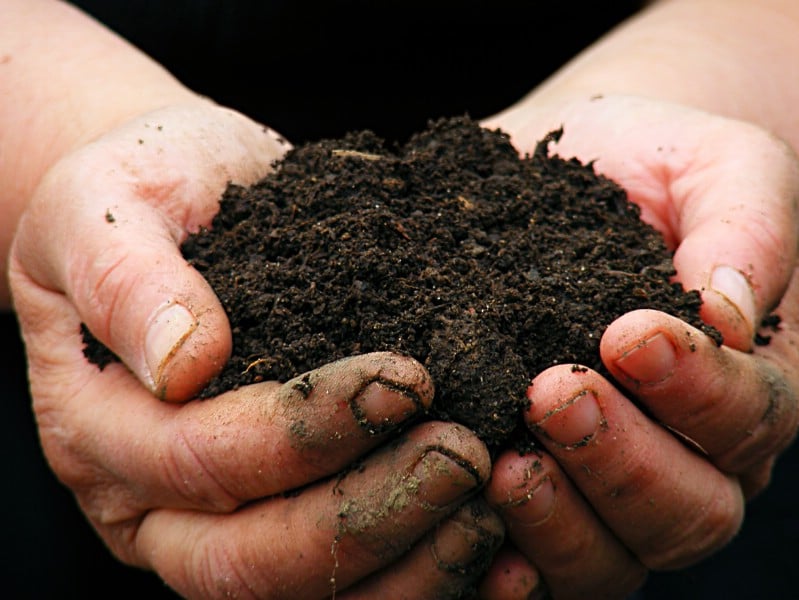
All you need to do is gather a cup of soil. Ideally, you’ll get soil from several different spots in the garden. Place two spoonfuls in separate containers. Add half a cup of white vinegar to the soil and watch it. If it fizzes, your soil is alkaline.
If it does not fizz, add some distilled water to another container. Add half a cup of baking soda. If it fizzes, it’s acidic. If it doesn’t, it’s probably more on the neutral side.
13. Get Rid of Gnats
Gnats are common around leaf piles and compost bins. Banish them for good by adding two tablespoons of baking soda to a half-gallon of water. Add a teaspoon of soap for good measure, too.
Spray the mixture on your compost or leaf piles, and the gnats will be gone in no time.
14. Kill Weeds
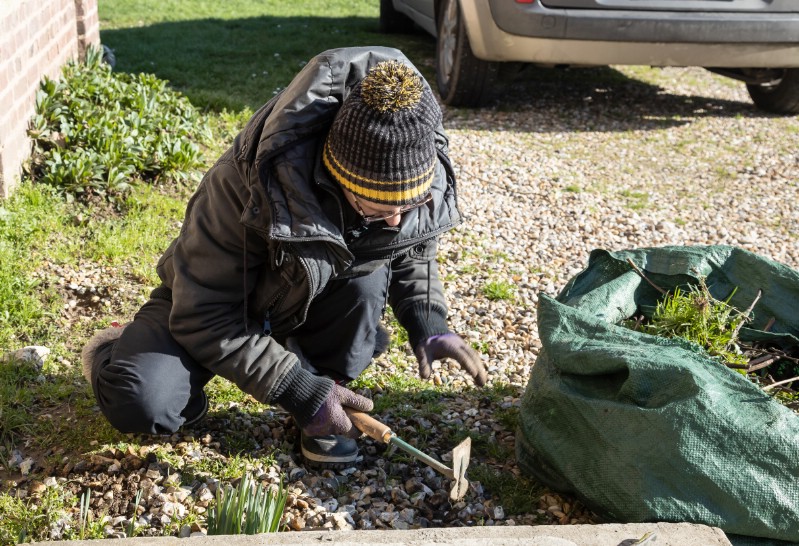
Weeds have you feeling glum about your garden? You can easily get rid of them with the help of baking soda. Just pour some baking soda into cracks where weeds are appearing.
It Will kill new weeds that have just sprouted and prevent new ones from appearing, too.
15. Keep Rabbits Away
Rabbits giving you grief? If so, you can make a ring of baking soda around each plant. This should dissuade rabbits from taking a bite. You may have to reapply the mixture after each rain.
16. Freshen Cut Flowers
When you bring your brooms inside, it’s inevitable that they’re going to die back eventually. However, you can keep them looking gorgeous for longer if you add a tablespoon of baking soda to a couple of quarts of water.
Change the solution every day, and you’ll likely find that your flowers stay fresh twice as long as they used to.
17. Wipe Down Your Houseplants
Baking soda is even beneficial for houseplants. If there are any large plants inside that have a tendency to gather grime and dust, you may want to start using baking soda.
Dab a bit of baking soda on the plants, along with some warm water, and you’ll find that your plants are as good as new in no time.
18. Stop Powdery Mildew in its Tracks
Powdery mildew is a frustrating fungal disease that can be easily prevented with baking soda. It is a disease common in squash, cucumbers, lilacs, and zinnias.
To get rid of it and to prevent it, mix together a tablespoon of baking soda, a gallon of water, a tablespoon of vegetable oil, and a tablespoon of dishing liquid.
Mix all of these ingredients in a spray bottle and douse your plants on a weekly basis. Try to apply it on overcast days so you don't have to worry about the vinegar burning your plants.
19. Clean Bird Baths
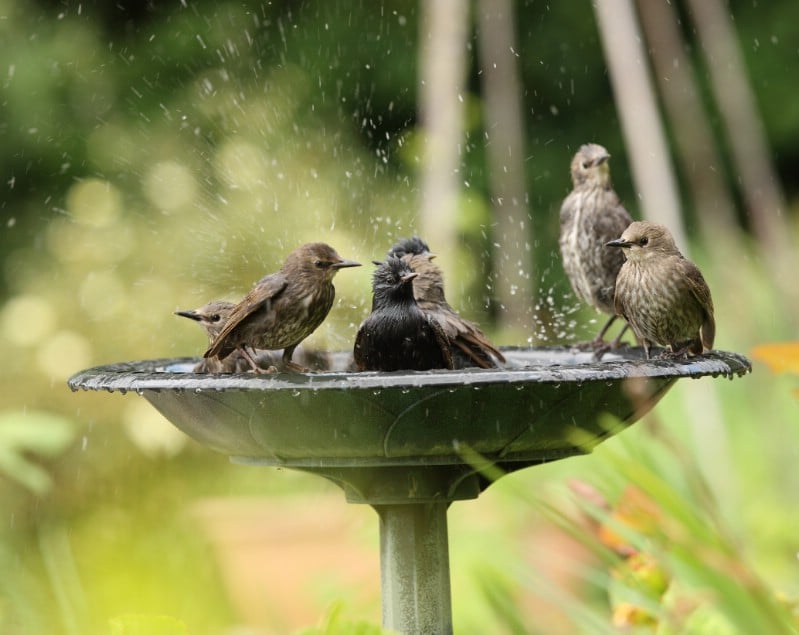
If your birdbaths are looking a bit grimy, you might want to clean them up with baking soda. Simply wipe them down with a damp rag and some baking soda. Then, rinse with cool water. Your birds will love their revamped space!
20. Get Rid of Crabgrass
If crabgrass is your latest gardening nemesis, you can banish it with a bit of baking soda. Simply dust the grass with baking soda. You’ll want to apply it heavily.
The crabgrass will begin to die back in just a few days. Just be careful about not getting too much on your regular grass, as the baking soda won’t discriminate - it will kill that fresh growth, too.
21. Scrub Dirty Tools
As you probably already know, baking soda is an abrasive material that works wonders at getting rid of caustic stains. If you have tools that remain grimy no matter how often you rinse them, consider giving them a good scrub down with baking soda.
22. Brighten Your Flower Blossoms
Certain kinds of flowers really thrive in alkaline soil. If you’re trying to push the soil in that direction, you may want to mix a bit of baking soda into the watering can.
When your plants finally bloom, the flowers will look brighter and healthier than normal. Pro tip: fill your garden with perennial flowers for an effortless endless flower garden that renews year by year.
23. Clean Your Hands
If your hands are looking grainy after a day spent working in the garden, you can use baking soda to polish them right up. Simply rub your hands and scrub theM (while wet0 with baking soda. Then rinse.
If you want to really get things clean, add a bit of vinegar. The mixture will loosen up anything that might be stuck on! It’s a natural deodorizer, too, so it will make your hands smell better after you’ve scrubbed.
What to Know About Using Baking Soda in the Garden
Baking soda is one of the most effective tools you have in your toolbox as a gardener. It causes very little harm to plants and may even be beneficial for improving their long term health.
However, before adding baking soda to any section of your garden, you might want to test it out in small batches first. That way, you won’t have to worry about it harming your plants.
Otherwise, baking soda is a valuable addition to any garden - no matter what kind of need you might have, baking soda likely offers the perfect solution.





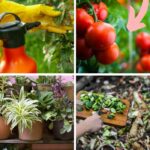
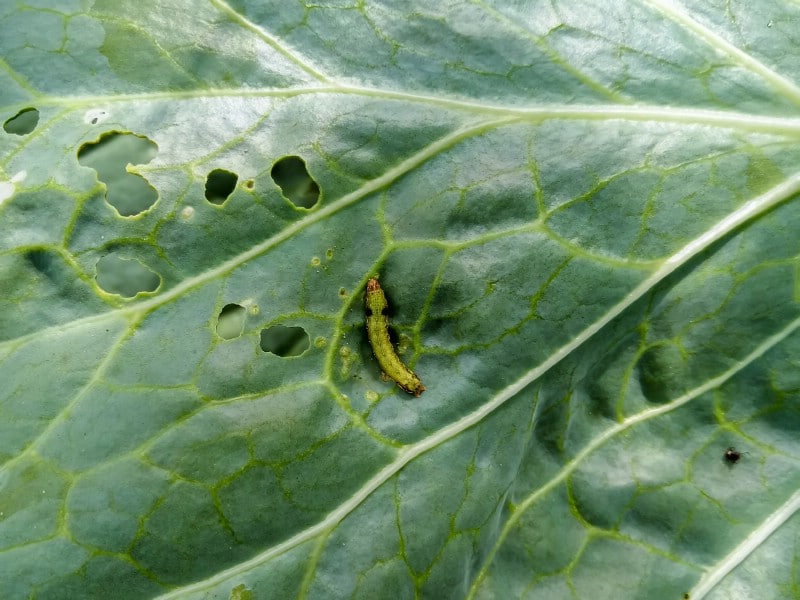
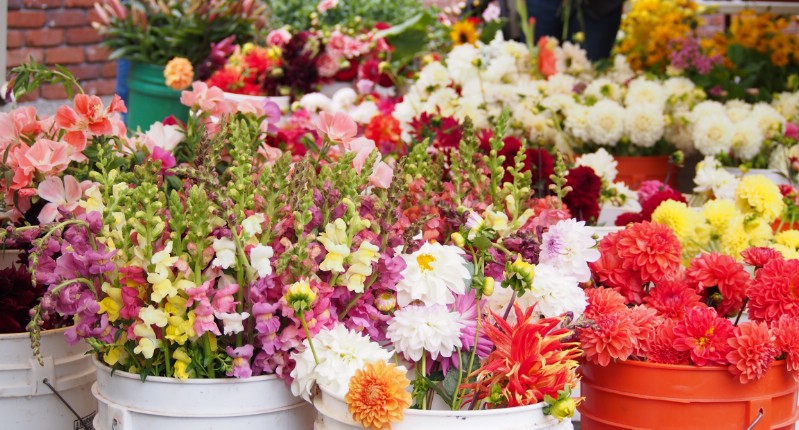
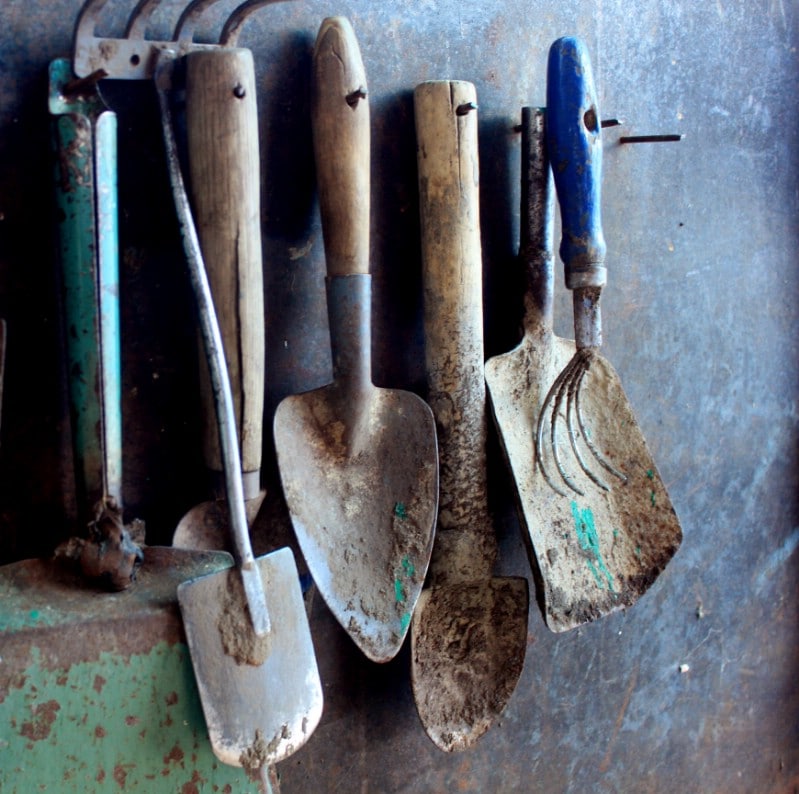
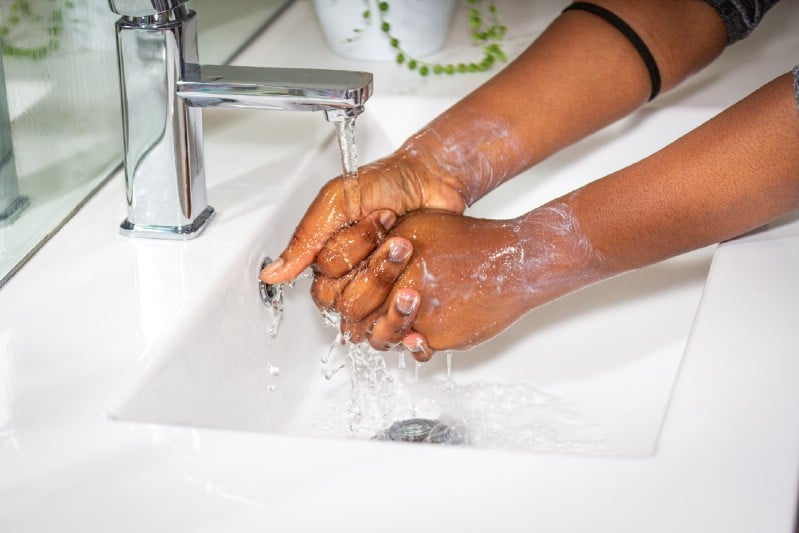

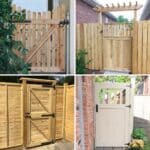
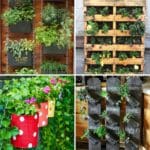
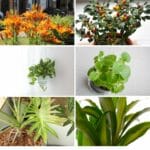
EunicE
Thanks very useful. I will try this on my tomatoes.
Steve Jay Orlinick
You mention not spraying for powdery mildew when it is sunny so the "vinegar" doesn't burn the plants but I do not see vinegar in the recipe?
Harry Wm
18. Stop Powdery Mildew in its TracksPowdery mildew is a frustrating fungal disease that can be easily prevented with baking soda. It is a disease common in squash, cucumbers, lilacs, and zinnias.
To get rid of it and to prevent it, mix together a tablespoon of baking soda, a gallon of water, a tablespoon of vegetable oil, and a tablespoon of dishing liquid.
Mix all of these ingredients in a spray bottle and douse your plants on a weekly basis. Try to apply it on overcast days so you don’t have to worry about the vinegar burning your plants.
Needs correction. Last paragraph mentions vinegar. Formula does not include vinegar with the other ingredients.